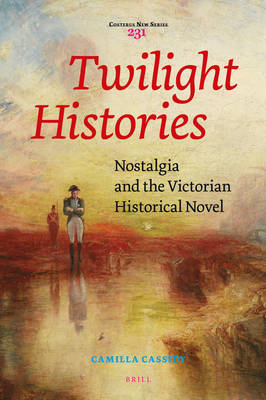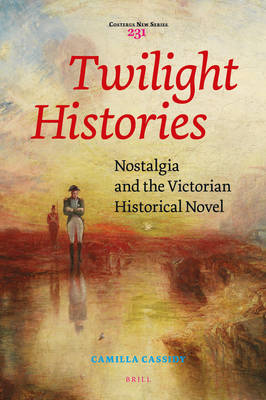
- Afhalen na 1 uur in een winkel met voorraad
- Gratis thuislevering in België vanaf € 30
- Ruim aanbod met 7 miljoen producten
- Afhalen na 1 uur in een winkel met voorraad
- Gratis thuislevering in België vanaf € 30
- Ruim aanbod met 7 miljoen producten
Zoeken
€ 210,95
+ 421 punten
Omschrijving
Twilight Histories explores the relationship between nostalgia and the Victorian historical novel, arguing that both responded to the turbulence brought by accelerating modernisation. Nostalgia began as a pathological homesickness, its first victims seventeenth-century soldiers serving abroad. Only gradually did it become the sentimental memory we understand it as today. In a striking parallel to nostalgia's origin, the historical novel emerged in the tumultuous early-years of the nineteenth century, at a time when the Napoleonic Wars once again set troops on the move, creating a new wave of homesick soldiers. In the historical novels of Gaskell, Thackeray, Dickens, Eliot and Hardy, nostalgia offered a language in which to describe the experience of living through changing times as a homesickness for history.
Twilight Histories has been included in Oxford Bibliographies' Historical Novel category, where it has been reviewed as "[a]n illuminating study of mid-Victorian novels of the recent past--the period of the French Revolution and Napoleonic Wars."
Twilight Histories has been included in Oxford Bibliographies' Historical Novel category, where it has been reviewed as "[a]n illuminating study of mid-Victorian novels of the recent past--the period of the French Revolution and Napoleonic Wars."
Specificaties
Betrokkenen
- Auteur(s):
- Uitgeverij:
Inhoud
- Aantal bladzijden:
- 252
- Taal:
- Engels
- Reeks:
- Reeksnummer:
- nr. 231
Eigenschappen
- Productcode (EAN):
- 9789004526501
- Verschijningsdatum:
- 3/11/2022
- Uitvoering:
- Hardcover
- Formaat:
- Genaaid
- Afmetingen:
- 155 mm x 235 mm
- Gewicht:
- 543 g

Alleen bij Standaard Boekhandel
+ 421 punten op je klantenkaart van Standaard Boekhandel
Beoordelingen
We publiceren alleen reviews die voldoen aan de voorwaarden voor reviews. Bekijk onze voorwaarden voor reviews.











